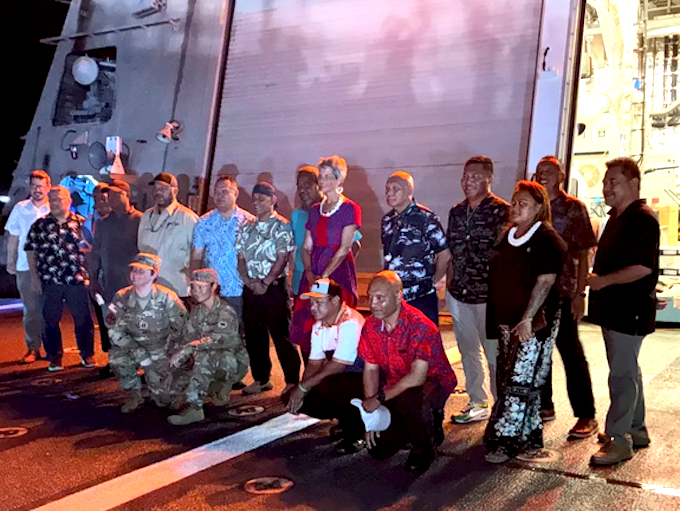
By Giff Johnson, editor, Marshall Islands Journal/RNZ Pacific correspondent
United States military veterans in the Marshall Islands, Federated States of Micronesia and Palau received increased attention during the Biden Administration after years of neglect by the US Veterans Administration.
That progress came to a halt with the incoming Trump Administration in Washington in January, when the new Veterans Administration put many programmes on hold.
Marshall Islands Foreign Minister and US military veteran Kalani Kaneko said he is hopeful of resuming the momentum for veterans living in the freely associated states.
Two key actions during the Biden administration helped to elevate interest in veterans living in the freely associated states:
- The administration’s appointment of a Compact of Free Association (COFA) Committee that included the ambassadors to Washington from the three nations, including Marshall Islands Ambassador Charles Paul, and US Cabinet-level officials.
- The US Congress passed legislation establishing an advisory committee for the Veterans Administration for Compact veterans.
- Kalani Kaneko was appointed as chairman to a three-year term, which expires in September.
Kaneko said he submitted a report to the Veterans Administration recently on its activities and needs.
The Foreign Minister said it is now up to the current administration of the Veterans Administration to take next steps to reappoint members of the advisory committee or to name a new group.
Virtually non-existent
Kaneko pointed out that in contrast to its virtually non-existent programme in the Marshall Islands, FSM and Palau, the VA’s programme for veterans is “robust” in Puerto Rico and the US Virgin Islands.
Citizens of the three compact nations enlist in the US military at higher rates per capita than Americans.
But when they leave the service and return home to their islands, they have historically received none of the benefits accorded to US veterans living in the United States.
Kaneko and island leaders have been trying to change this by getting the Veterans Administration to provide on-island services and to pay for medical referrals of veterans when locally available medical services are not available.
Kaneko said the 134-page report submitted in June contained five major recommendations for improved services for veterans from the US-affiliated islands:
- Establish a VA clinic in Majuro with an accredited doctor and nurse.
- Authorise use of the Marshall Islands zip code for US pharmacies to mail medicines to veterans here (a practice that is currently prohibited).
- If the level of healthcare in Marshall Islands cannot provide a service needed by a veteran, they should be able to be referred to hospitals in other countries.
- Due to the delays in obtaining appointments at VA hospitals in the US, the report recommends allowing veterans to use the Marshall Islands referral system to the Philippines to access the US Veterans Administration clinic in Manila.
- Support and prioritise the access of veterans to US Department of Agriculture Rural Development housing loans and grants.
Kaneko said he is hopeful of engagement by high-level Veterans Administration officials at an upcoming meeting to review the report and other reports related to services for Compact nation veterans.
But, he cautioned, because there was nothing about compact veterans in President Trump’s “Big Beautiful Bill” passed recently by the US Congress, it means fiscal year 2027 — starting October 1, 2026 — would be the earliest to see any developments for veterans in the islands.
This article is republished under a community partnership agreement with RNZ.













































